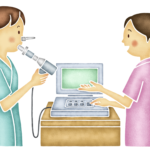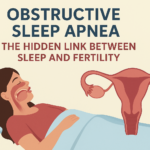10th Aug 2022 by Dr.Manvir Bhatia & Ananya

The world has evolved into a 24-hour society. We are always in need of goods and services. For example, hospitals, police stations, transport services, defense services, fire stations, etc are needed to operate all the time. With the rise of globalization, trade with foreign countries has increased. We need to communicate with them according to their normal timings. Hence, we see that there is a need for shift workers for the smooth functioning of society. People are required to work at all times of the day for our convenience.
Shift work is doing any form of work outside normal working hours. Shift workers work at any time, be it evening, night, day, extra, or overtime. They mostly work in rotating shifts.
Immediate effects of shift work:
Sleep: Night shift workers need to sleep during the day. This is the time when the circadian rhythm is the most active. They generally get 2-3 hours of less sleep because they get light sleep and are awoken easily by slight disturbances. Hence, night shift workers get the least amount of sleep followed by the day shift ones. Evening shift workers get the maximum amount of sleep.
Sleep deprivation makes it very easy for one to fall asleep at inappropriate times, thereby affecting a worker’s efficiency and safety. They become more prone to accidents due to brief moments of sleep of a few seconds. They get a poorer quality of stage 2 and rapid eye movement(REM) sleep.
Circadian rhythm: This is the regular sleep-wake cycle of the body. Normal day work and night sleep are the best for maximum people with respect to efficiency. This is because their body is the most active during the day and the least active at night. If disturbed, it interferes with alertness and efficiency. People working night shifts force themselves and stay awake and alert to perform well. Continuing this for a prolonged time can lead to fatigue and decrease overall efficiency and concentration.
Interference with family and social life: Most events are scheduled in the evenings and on the weekends. This is the time of work for shift workers. Hence, most of them miss out on social and family life. They sometimes need to compromise on their sleep to spend time with their spouse and kids.
Long term effects:
Mental health – Shift workers often experience irritability, anxiety, and nervousness. The persistent disruption of circadian rhythm might lead to mood disorders, depression, chronic fatigue, etc. This results in absenteeism and the worker finds it very difficult to focus and perform well.
Gastrointestinal disorders – Meal times are very important for synchronizing our physiological and social life. Shift workers generally do not compromise on their energy intake, but they develop a habit of snacking(during breaks) and also have to eat cold food at times. Their meal times are displaced from the normal phases of gastrointestinal circadian activity. According to a study by Segawa et al., on 12000 workers from several sectors, shift workers were twice as prone to peptic ulcers as compared to day workers. Also, they are more prone to infections by Helicobacter pylori.
Metabolic disorders – Prevalence of nutrient and metabolic disorders such as overweight, obesity, increased triglycerides, and total cholesterol (and decreased good cholesterol) in the blood. Irregular meals, mismatched circadian rhythms, sleep, digestive disturbances, etc. are a few factors that contribute to the same.
Cardiovascular disorders – Shift workers on average are at 40% excess risk of ischemic heart disease and other CVDs. This is mainly because of inverted sleep-wake cycles, sleep deprivation, lifestyle changes, and related circadian rhythm disruption. The risk factors for cardiovascular disorders such as smoking, obesity, etc. are more prevalent in shift workers.
Cancer – In the year 2007, the International Agency on Research on Cancer declared shift work to be a probable carcinogen. The risk is more in the case of women. Disruption of circadian rhythm tends to disturb hormonal levels. Suppression of release of melatonin at night ontogenically targets breast tissues in women and prostate glands in men. Sleep deprivation also suppresses the immune system, which might lead to the growth and accumulation of malignant clones.
The reproductive function of Women – The monthly menstrual cycle of female shift workers tends to get disturbed in the case of shift workers. They are at a higher risk of premenstrual syndrome, menstrual pain, miscarriage, and post-term and preterm births. They also have a low fertility rate and high rates of abortion as compared to day workers. This is not only due to hormonal changes but also as a result of the difficult schedules which make it very difficult to manage work and home.
Steps to be taken :
- Organizations should try to limit night shift work as much as possible.
- Shift schedules should be organized keeping the following things in mind:
- Prolonged periods of consecutive night shifts should be avoided.
- Quickly rotating shifts (e.g. 1 to 3 days) should be preferred instead of those extending to one or two weeks.
- Clockwise rotation (morning/afternoon/night) should be preferred over counterclockwise (afternoon/morning/night) rotation
- Morning shifts that start too early should be avoided.
- Most importantly, the shifts need to be scheduled according to the psycho-physical demands of the individual.
- At the organizational level, the employer needs to be well educated and understand the needs and good health of the employees. They need to be aware that there are negative impacts of shift work, which might lead to absenteeism, decreased productivity, and adverse effects on the health of the worker. Hence, they should be considerate and prioritize adequate rest and health of their employees.
- Good social support from coworkers, supervisors, and family members has a positive effect on efficiency and also allows them to adapt easily.
- At an individual level, one must have a high level of self-awareness. Night shift workers should ensure a good amount of sleep in the day by :
- Preparing a morning bedtime routine that can make them fall asleep faster.
- Use dark curtains or sleep masks to block out light.
- Using a white noise machine to block out noise.
- Minimizing the use of electronic devices before sleeping.
Even though there isn’t a single full-proof solution for dealing with the issues associated with shift work, we need to prioritize the health of our workers. There are various domains to be worked upon such as psychology, politics, ethics, sociology, etc. to address this issue as a whole. Thus, the concurrent action of health professionals, policymakers, economists, educators, and legislators is required to effectively handle this issue.
References:
Segawa, K., Nakazawa, S., Tsukamoto, Y., Kurita, Y., Goto, H., Fukui, A., & Takano, K. (1987). A peptic ulcer is prevalent among shift workers. Digestive diseases and sciences, 32(5), 449–453. https://doi.org/10.1007/BF01296025
Zober, A., Schilling, D., Ott, M. G., Schauwecker, P., Riemann, J. F., & Messerer, P. (1998). Helicobacter pylori infection: prevalence and clinical relevance in a large company. Journal of occupational and environmental medicine, 40(7), 586–594. https://doi.org/10.1097/00043764-199807000-00002











